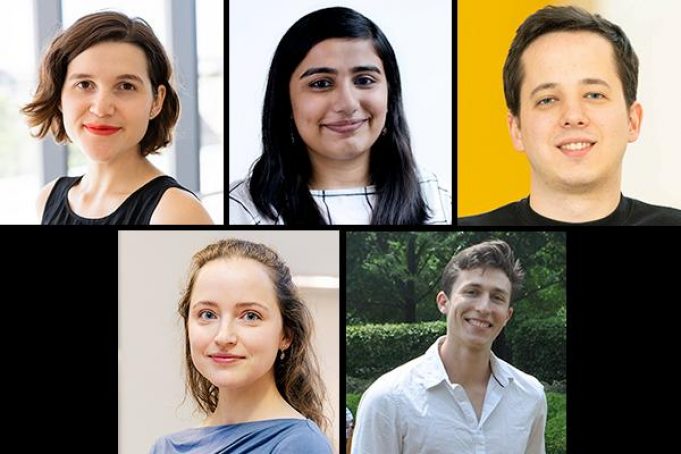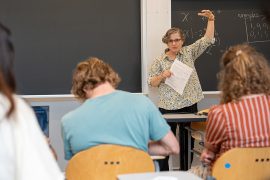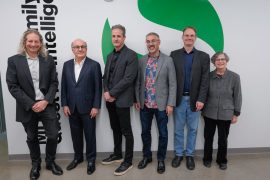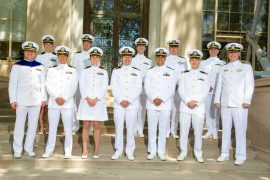Five MIT PhD students named inaugural Amazon Fellows

Awarded by the Science Hub, the fellowship will provide support to pursue research in the fields of artificial intelligence and robotics.
Five MIT PhD students have been honored with Amazon fellowships to help pursue their research in the fields of artificial intelligence and robotics.
Awarded by the Science Hub, the students will receive funding to conduct independent research projects at MIT.
A collaboration between MIT and Amazon established in October 2021, the Science Hub supports research, education, and outreach efforts in areas of mutual interest. Administered at MIT by the Schwarzman College of Computing, the hub aims to expand participation in AI, robotics, and other fields, and ensure the benefits of this research are shared broadly.
From equitable design to neuroscience, the inaugural recipients of the fellowship are investigating AI and robotics research across a multi-discipline of areas.
Robotics Fellows
Aparna Balagopalan is a PhD student in the Department of Electrical Engineering and Computer Science (EECS) in the Healthy ML group. Balagopalan’s research broadly focuses on developing fair, interpretable and robust models by carefully re-evaluating and surfacing assumptions in machine learning-based measurements in socially-relevant contexts.
Anastasia Ostrowski is a PhD student and design researcher at the MIT Media Lab in the Personal Robots Group. She completed her bachelor’s and master’s degrees in biomedical engineering from the University of Michigan with a focus on engineering design processes and idea generation. Currently, she is exploring how to support equitable design of robots through Design Justice, co-design, and participatory design approaches in the human-robot interaction field, working with roboticists, co-designers, and policy-makers.
Alexa Fellows
Ekin Akyürek is a PhD student studying artificial intelligence through natural language processing and machine learning, working with Jacob Andreas. Akyürek works to improve sequence models – workhorse of language processing and understanding. Despite the remarkable success of most enhanced versions of these models (e.g. GPT-3), they cannot always adapt to the new information the user provides without additional engineering and data collection efforts. His work aims to enable neural sequence models to generalize new tasks by just reading the new instructions given by the user and maybe a very few number of demonstrations.
Mycal Tucker is a PhD student in the Department of Aeronautics and Astronautics, working with Julie Shah, the H.N. Slater Professor of Aeronautics and Astronautics and head of the Interactive Robotics Group at CSAIL. Tucker focuses on explainability and interpretability of robotics and AI systems, or how complex computer and robotic systems can explain their policies and state to humans who have no special training. His research manifests itself as custom-built neural models, probes to understand the linguistic properties of natural language processing models, and representation learning for human understanding.
Greta Tuckute is a PhD student in the Department of Brain and Cognitive Sciences, working with Ev Fedorenko, an associate professor of neuroscience and an investigator with the McGovern Institute for Brain Research. Tuckute works at the intersection of neuroscience, artificial intelligence, and cognitive science. She is interested in understanding how language is processed in the human brain, how the representations learned by humans compare to those of artificial systems, and how we can leverage insights about the brain within the field of artificial intelligence.


